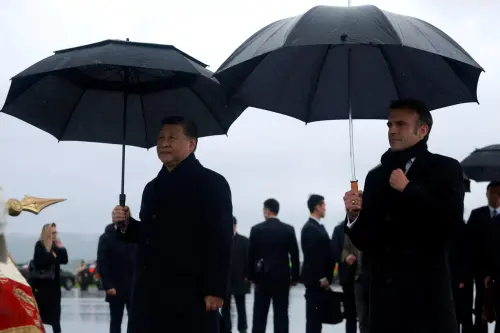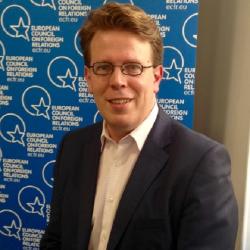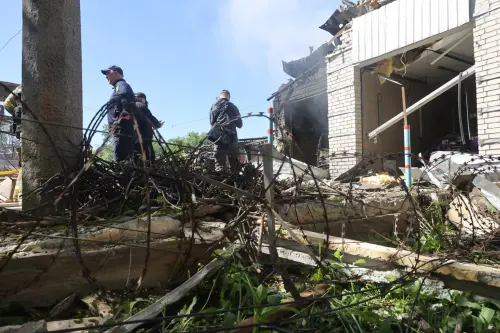

9:00 am EST - 10:00 am EST
Past Event
 On Wednesday, December 16, the Center on the United States and Europe (CUSE) at Brookings hosted Manuel Lafont Rapnouil and Sebastian Groth, the French and German heads of policy planning, for a discussion with former U.S. Ambassador to NATO and Brookings Nonresident Senior Fellow Victoria Nuland, moderated by CUSE Director Thomas Wright. The discussion focused on French, German, and European perspectives on prospects for trans-Atlantic cooperation. The event was part of the Brookings – Robert Bosch Foundation Transatlantic Initiative.
On Wednesday, December 16, the Center on the United States and Europe (CUSE) at Brookings hosted Manuel Lafont Rapnouil and Sebastian Groth, the French and German heads of policy planning, for a discussion with former U.S. Ambassador to NATO and Brookings Nonresident Senior Fellow Victoria Nuland, moderated by CUSE Director Thomas Wright. The discussion focused on French, German, and European perspectives on prospects for trans-Atlantic cooperation. The event was part of the Brookings – Robert Bosch Foundation Transatlantic Initiative.
Panelists discussed the November 16 joint op-ed by Jean-Yves Le Drian and Heiko Maas, the French and German foreign ministers, calling for a trans-Atlantic “New Deal.” The ministers advocate for a renewed partnership adapted to meet current global challenges and “in line with the depth of our bonds, common values and shared interests.” However, despite enthusiasm for a renewed trans-Atlantic relationship on both sides of the Atlantic, practical difficulties remain.
Wright posed questions to the panelists about shared trans-Atlantic challenges, beginning with the ongoing COVID-19 pandemic. What have governments on both sides of the Atlantic learned about the geopolitical implications of the global public health architecture in the past year? Is President-elect Biden’s “Summit for Democracy” a good idea? And to what extent is Europe looking for a return of American leadership?
Lafont Rapnouil characterized the coming period as an “opportunity … to seize” because “the idea that diplomacy needs more space, that … allies are important, that multilateralism matters, and the fact that [the] EU will not be considered as a foe or that NATO will not be deemed obsolete are key changes.” There is much to be gained through trans-Atlantic cooperation, he continued, including managing the pandemic and long-term challenges such as climate change.
On the question of the “Summit for Democracy,” Lafont Rapnouil argued that while democracies must cooperate on shared challenges, not everything is about competition between democracies and authoritarian regimes. Groth added that though the summit can help reestablish a working framework for democratic allies, he shared his French counterpart’s assessment that “there are a lot of problems that you won’t solve only with democracies,” including global public goods.
Groth made three further observations in response to international management of the pandemic. Firstly, the concept of security must be redefined more comprehensively to encompass health crises. Secondly, trust in state institutions must be revitalized to prove that the Western model of democratic governance is functioning. Finally, emphasis on the relevance of international cooperation is necessary. The World Health Organization (WHO), for example, will be central to managing future health crises. France and Germany have proposed reforms to the financing and local structures of the WHO, an area in which American participation, as Groth stressed, will be crucial.
However, as each panelist emphasized, the agenda for trans-Atlantic cooperation is so ambitious that it may be more than Europe — or the United States — is ready for. Indeed, the primary challenge for the incoming administration will be the scope of the agenda more than its content. The perspective from both sides of the Atlantic is, therefore, cautiously optimistic.
Panelist



Tara Varma
May 8, 2024
2024
The Brookings Institution, Washington DC
10:00 am - 11:30 am EDT

Alexander Noyes
May 1, 2024